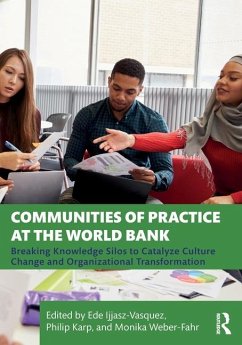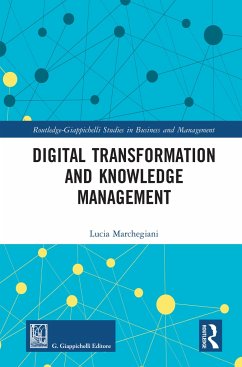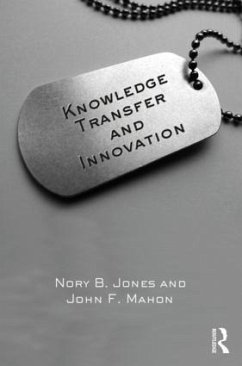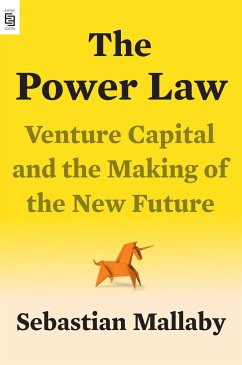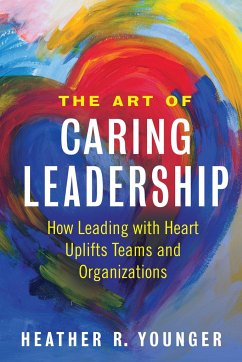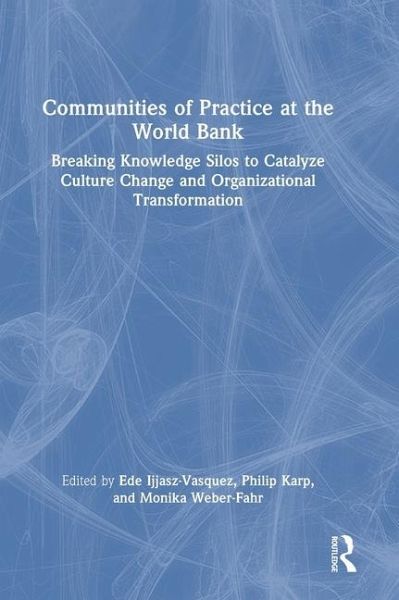
Communities of Practice at the World Bank
Breaking Knowledge Silos to Catalyze Culture Change and Organizational Transformation
Herausgegeben: Ijjasz-Vasquez, Ede; Karp, Philip; Weber-Fahr, Monika

PAYBACK Punkte
72 °P sammeln!
Illustrated by the experience of the World Bank, this book explains how knowledge management, traditionally viewed as being about information systems and processes, can play a fundamental corporate role by creating a competitive edge for organizations, increasing team performance, and fostering effective, large-scale organizational change. Rich and powerful stories, told by economic development practitioners and knowledge management specialists throughout the World Bank, describe the strategies, instruments, tools, and processes at the core of one of the most important and radical reorganizati...
Illustrated by the experience of the World Bank, this book explains how knowledge management, traditionally viewed as being about information systems and processes, can play a fundamental corporate role by creating a competitive edge for organizations, increasing team performance, and fostering effective, large-scale organizational change. Rich and powerful stories, told by economic development practitioners and knowledge management specialists throughout the World Bank, describe the strategies, instruments, tools, and processes at the core of one of the most important and radical reorganizations of the world's premier international development institution. Going far beyond other knowledge management titles, this book:
shows how knowledge management can be a source of competitive advantage and team performance, rather than a back-room support functionfocuses on the role of the "software" of knowledge management, most notably the use of communities, culture, and collaboration across internal silos to create value; anddemonstrates the role that knowledge management can play in fostering innovation, and development of new business lines and strategies by global teams in diverse locations
Written not only for knowledge management professionals, but also for C-suite executives and middle managers who will see the benefits of bringing knowledge management to the core of organizational performance and competitive advantage, the book provides practical examples that can be replicated in other large global knowledge, financing, and development institutions and that will be relevant for public, private, and non-profit organizations.
shows how knowledge management can be a source of competitive advantage and team performance, rather than a back-room support functionfocuses on the role of the "software" of knowledge management, most notably the use of communities, culture, and collaboration across internal silos to create value; anddemonstrates the role that knowledge management can play in fostering innovation, and development of new business lines and strategies by global teams in diverse locations
Written not only for knowledge management professionals, but also for C-suite executives and middle managers who will see the benefits of bringing knowledge management to the core of organizational performance and competitive advantage, the book provides practical examples that can be replicated in other large global knowledge, financing, and development institutions and that will be relevant for public, private, and non-profit organizations.




